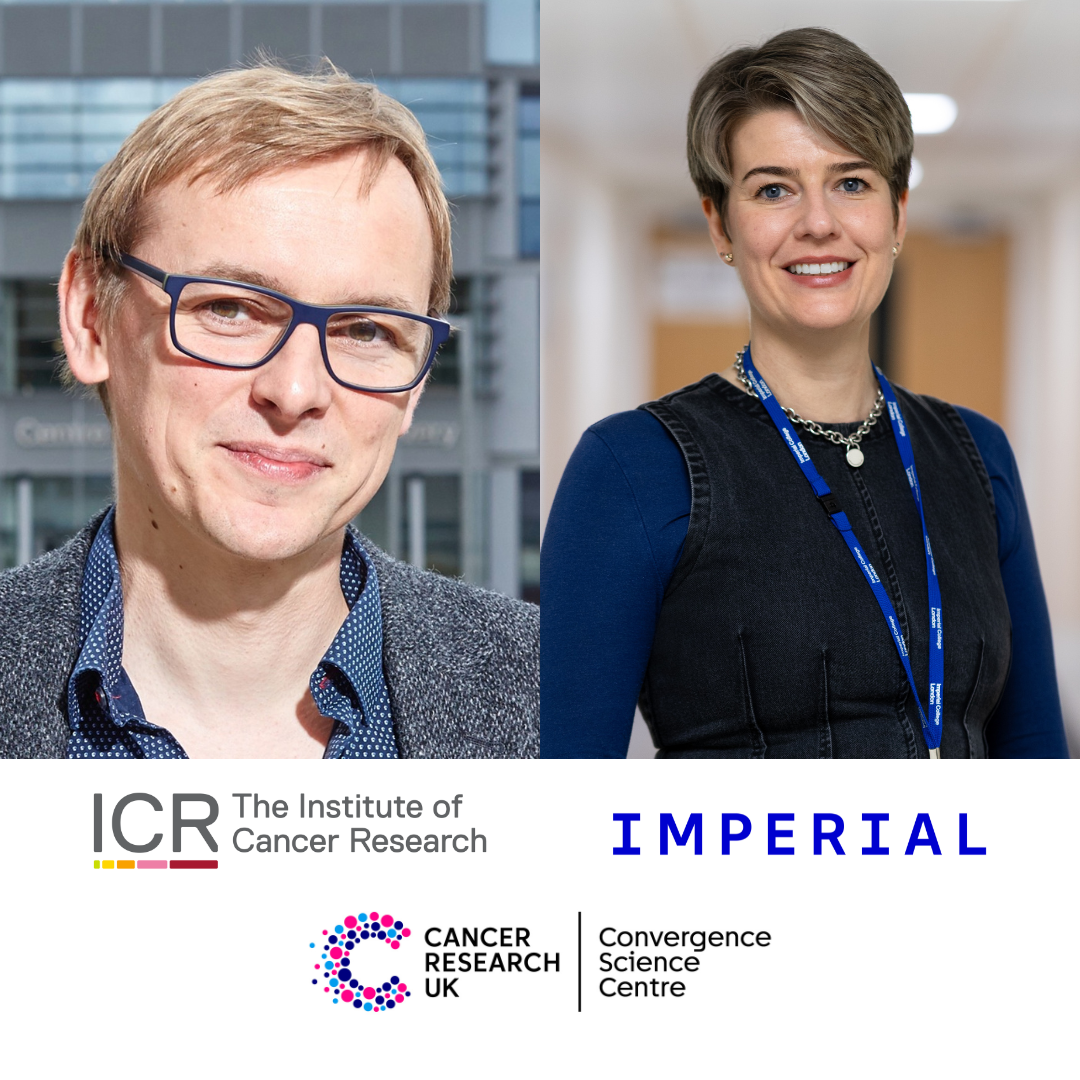

We invite you to join us for our internal Converging on Cancer online seminar on Thursday 2nd October, 3-4 PM (GMT).
The CRUK Convergence Science Centre is a partnership between Imperial College London and The Institute of Cancer Research (ICR). We aim to bring together researchers from different disciplines across both institutions to develop innovative ways to address challenges in cancer research to benefit patients.
The Centre's Converging on Cancer seminar series brings together speakers from Imperial and ICR to present their research and how they use convergence science to answer cancer-related questions.
Targeting Hydrolytic Enzymes in Colorectal Cancer
Over 16,000 people in the United Kingdom died of colorectal cancer in 2017 (CRUK), and alarmingly, prevalence is increasing among younger adults. Disruption of colonic barrier integrity exposes our mucosal immune system to the gut microbiota, triggering inflammation and creating an environment conducive to tumorigenesis. Little is known about what compromises barrier integrity. Our analyses of post-operative luminal contents from cancer patients have shown that tumour-associated luminal contents exhibit distinct serine hydrolase activity and inhibitor profiles compared to adjacent tissue. Although hydrolases are important for maintaining colonic homeostasis, aberrant hydrolase activity can damage tissue. Using gut-culture models, we have demonstrated that tumour-associated luminal contents induce barrier dysfunction dependent on serine hydrolase activity. Therefore, targeting serine hydrolases either through chemical or endogenous inhibitors offers novel strategies for prevention and treatment of colorectal cancer.
Who can attend?
Researchers, students and anyone with an interest in convergence science relating to cancer research across Imperial and ICR are welcome to register, please email icr-imperial-convergence.centre@imperial.ac.uk to receive the registration link.